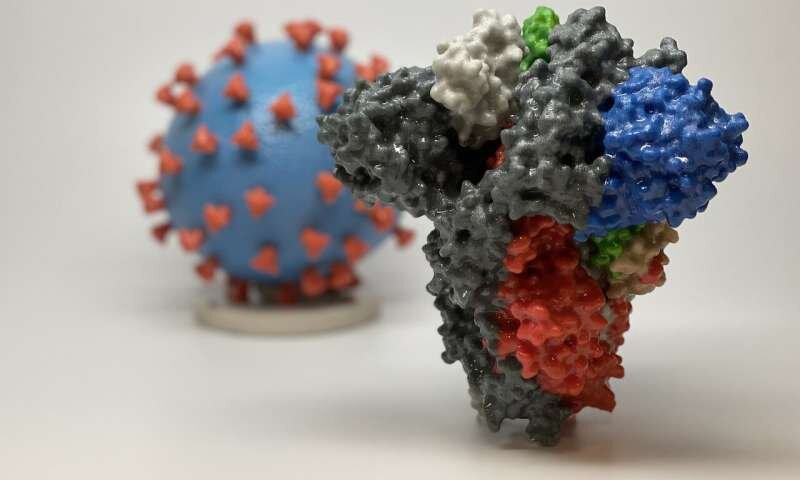Coronavirus more infectious now by 3-9 times: Iranian expert

TEHRAN – Global researches show that a specific change in the SARS-CoV-2 coronavirus genome has caused it to be more infectious by 3-9 times compared to the onset of the pandemic, deputy health minister Reza Malekzadeh has said.
Research, published in the journal Cell, indicates the variant in question, D614G, makes a small but effective change in the virus’s ‘Spike’ protein, which the virus uses to enter human cells.
Bette Korber, a theoretical biologist at Los Alamos National Laboratory and lead author of the study, noted, “The D614G variant first came to our attention in early April, as we had observed a strikingly repetitive pattern. All over the world, even when local epidemics had many cases of the original form circulating, soon after the D614G variant was introduced into a region it became the prevalent form.”
The SARS-CoV-2 virus has a low mutation rate overall (much lower than the viruses that cause influenza and HIV-AIDS). The D614G variant appears as part of a set of four linked mutations that appear to have arisen once and then moved together around the world as a consistent set of variations.
Will Fischer of Los Alamos, an author on the study, said “both that this increase in infectivity was detected by careful observation of sequence data alone, and that our experimental colleagues could confirm it with a live virus in such a short time.”
Fortunately, “the clinical data in this paper from Sheffield showed that even though patients with the new G virus carried more copies of the virus than patients infected with D, there wasn’t a corresponding increase in the severity of illness," said Saphire, who leads the Gates Foundation-supported Coronavirus Immunotherapy Consortium (CoVIC).
Korber noted, “These findings suggest that the newer form of the virus may be even more readily transmitted than the original form – whether or not that conclusion is ultimately confirmed, it highlights the value of what were already good ideas: to wear masks and to maintain social distancing.”
The study, entitled “Tracking changes in SARS-CoV-2 Spike: evidence that D614G increases infectivity of the COVID-19 virus”, suggests that viruses with D614G change in Spike out-competes original strain, but may not make patients sicker.
Over the past 24 hours, 2,186 new cases of COVID-19 were identified in Iran, of whom 1,499 were hospitalized, the total number of patients in the country reached 257,303, Health Ministry spokeswoman Sima Sadat Lari said on Sunday.
The number of daily COVID-19 mortalities in the country reported 194 on Sunday and the total number of deaths reached 12,829.
Currently, 3,359 patients with coronavirus are in critical condition. So far, 219,993 patients have recovered or been discharged from hospitals.
FB/MG
